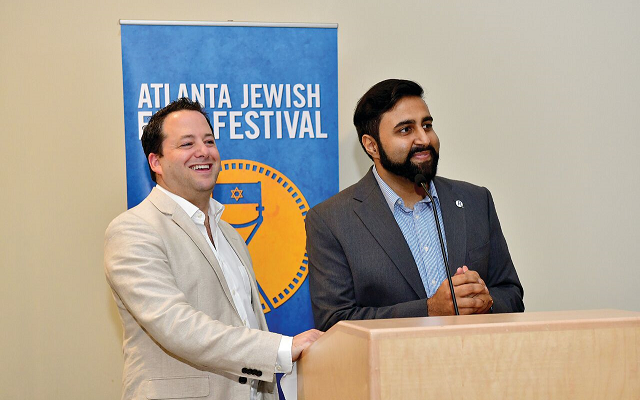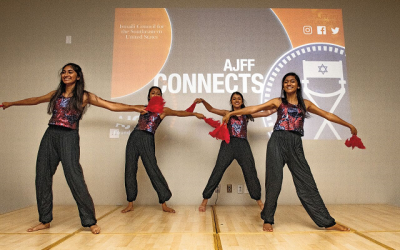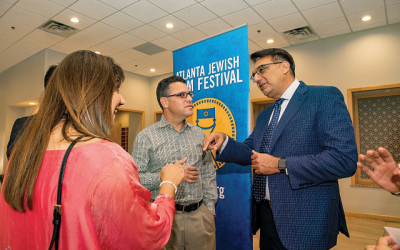Shalom Bollywood Brings Muslims and Jews Together
Atlanta Jewish Film Festival is redefining the definition of Jewish cinema in the city.

Three Jewish actresses who long ago helped pioneer the movie industry in India unwittingly also helped, in a precedent-shattering program Sunday, to bring Atlanta’s Jewish and Muslim communities closer together.
The actresses are long gone, but last Sunday’s showing of the documentary, “Shalom Bollywood” at an Islamic center in Norcross helped create a rare occasion for the two communities to get together for an entertaining afternoon of mutual understanding. The film also was screened at this year’s Atlanta Jewish Film Festival.
The program was introduced by Rabbi Brad Levenberg of Temple Sinai in Sandy Springs, who is also a board member of the AJFF.
He pointed out that the Reform movement, of which he is a part, “believes we are G-d’s hands for good in this world and we seize every opportunity we can to fix the brokenness we see around us.”
The screening took place at the Jamatkhana community and worship center of the Ismaili branch of Islam. It was believed to be the first time in the nearly 19-year history of the AJFF that such an interfaith program has been mounted.

The event was part of a recent series the AJFF developed to use film as a bridge between the Jewish community and audiences that might be unfamiliar with Jewish history and culture.
In June, the AJFF partnered with the Atlanta Black-Jewish Coalition for a screening about the life and work of the late former mayor of Atlanta, Maynard Jackson.
That same month they produced their ambitious Cinebash evening about the career of the legendary film graphics designer Saul Bass. It was aimed at a younger mainstream demographic that may not have been familiar with the film festival.
Earlier this month the festival helped inaugurate the new Sandy Springs Performing Arts Center with a family-friendly community event built around baseball. It featured a showing of the documentary, “Heading Home: The Tale of Team Israel,” which had been an audience favorite during this year’s festival program.

It’s all part of what AJFF Executive Director Kenny Blank has described as the festival’s attempt to redefine year-round what Jewish cinema can be in Atlanta. He believes film can be a great cultural experience that can also have a universal appeal to the cultural consumer. “That means partnering with organizations and places you wouldn’t expect to see the Atlanta Jewish Film Festival —- and yes, to expect the unexpected,” Blank said.
As an initial interfaith partner, the Ismaili community was likely a wise choice. Only about 15 million of the world’s 1.8 billion Muslims are Ismailis, but it is among the most progressive and forward-thinking movements within the faith, and a consistent voice for change in the Muslim world.
Under the leadership of the Aga Khan IV, who has led the Ismailis for more than 60 years, the movement has among its goals the elimination of global poverty, the promotion of women’s rights, and, in a distinct departure from more traditional Muslim movements, the advancement of secular pluralism. It’s the belief that modern life should not be under the control of any religion and that no government, anywhere, will favor one religion over another.
That’s something that Munir Meghjani fully endorsed at last Sunday’s screening. He is both a lay leader of the Norcross Ismaili center, and serves on the Muslim Jewish Coalition of the American Jewish Committee in Atlanta.
As he put it, “I love being a part of an interfaith movement that can help people show that we are different, and that there is beauty in that difference.”



comments